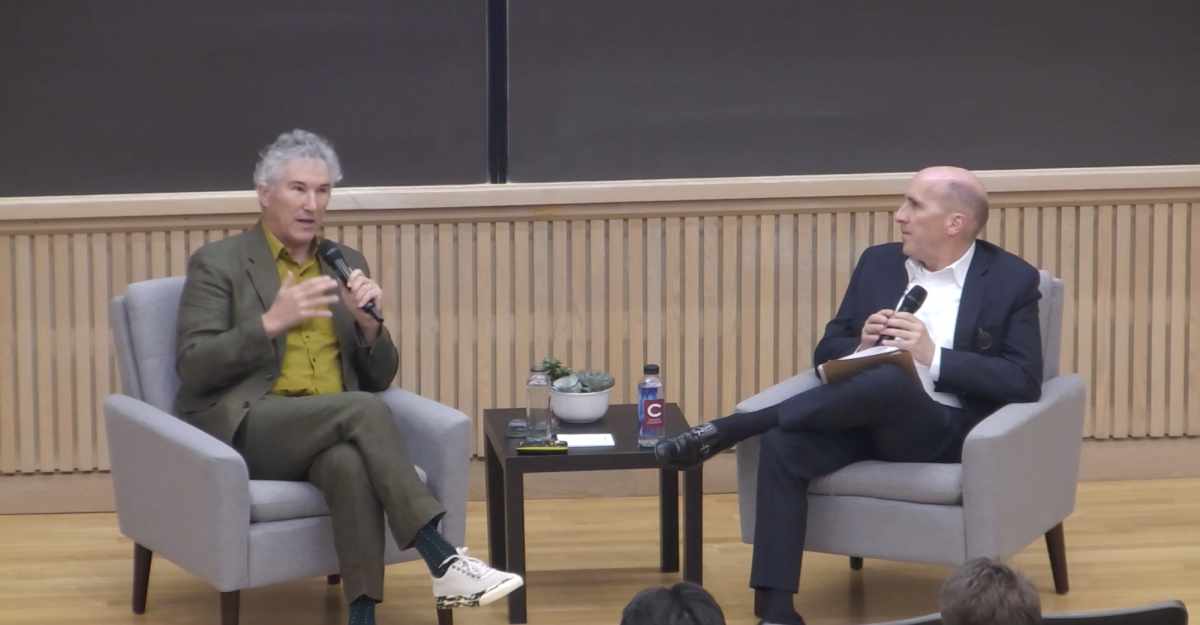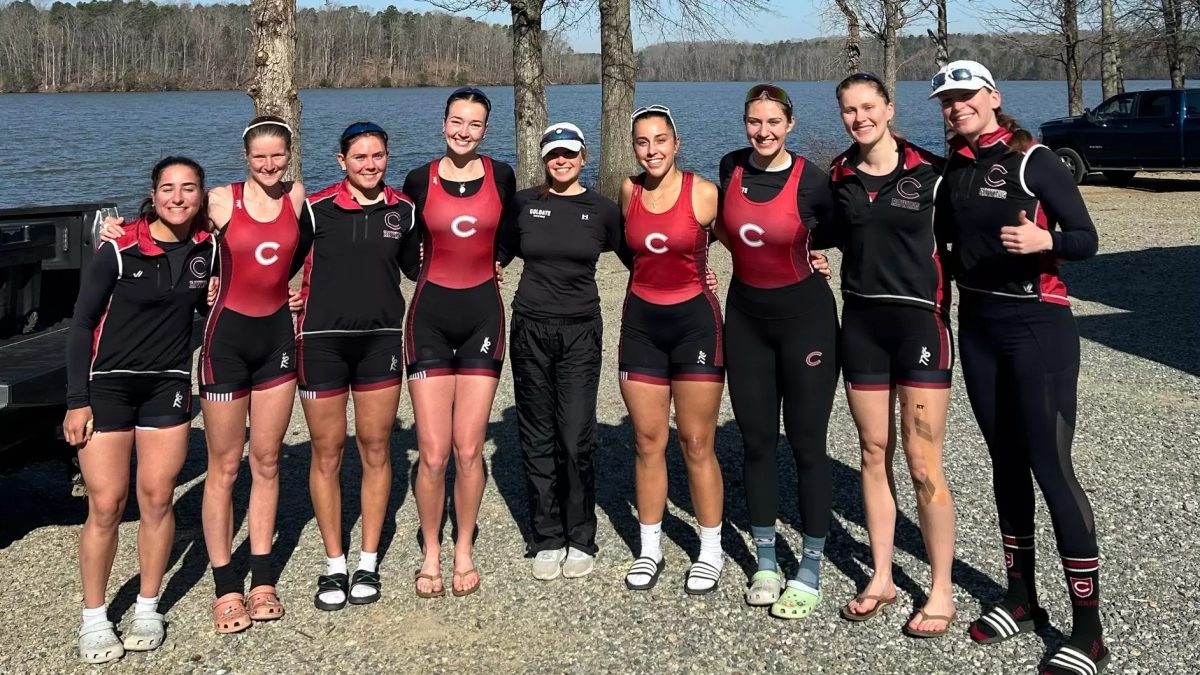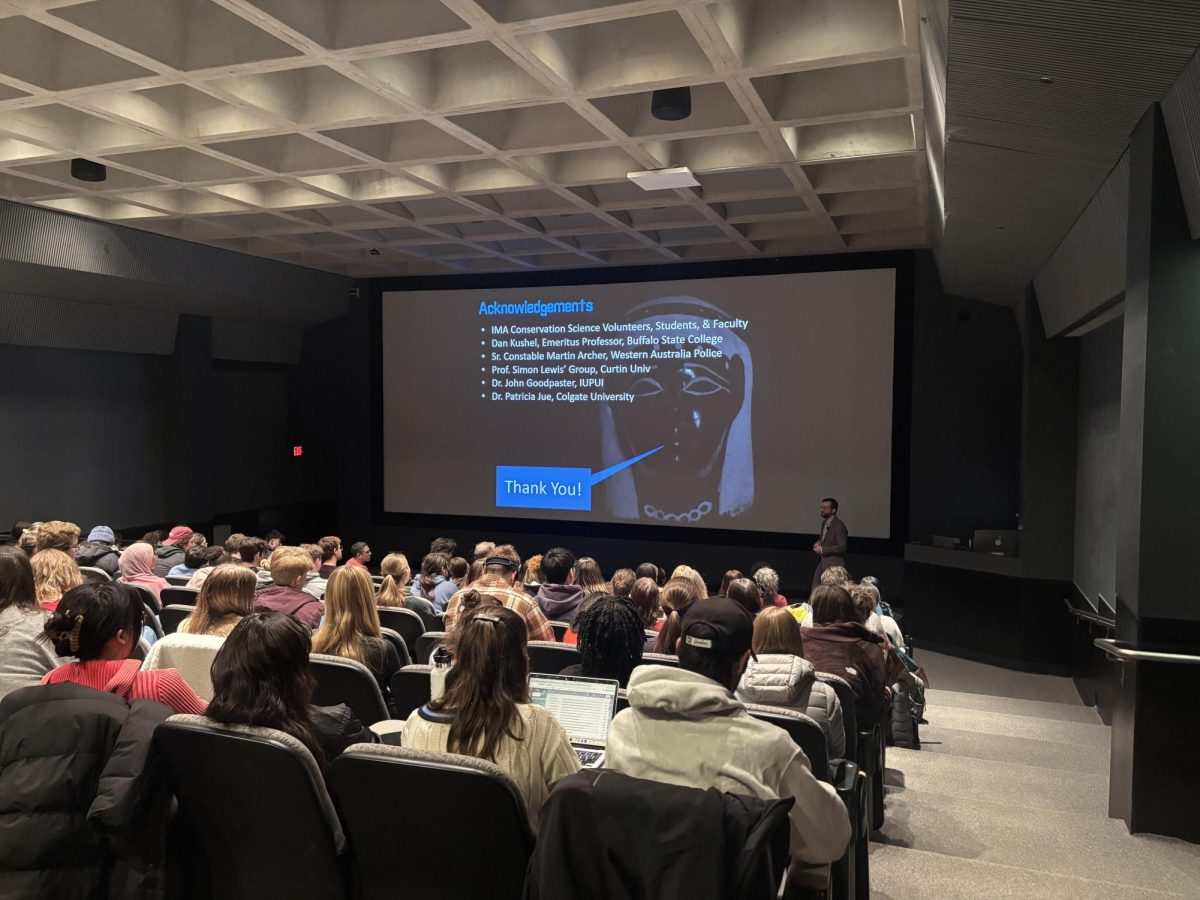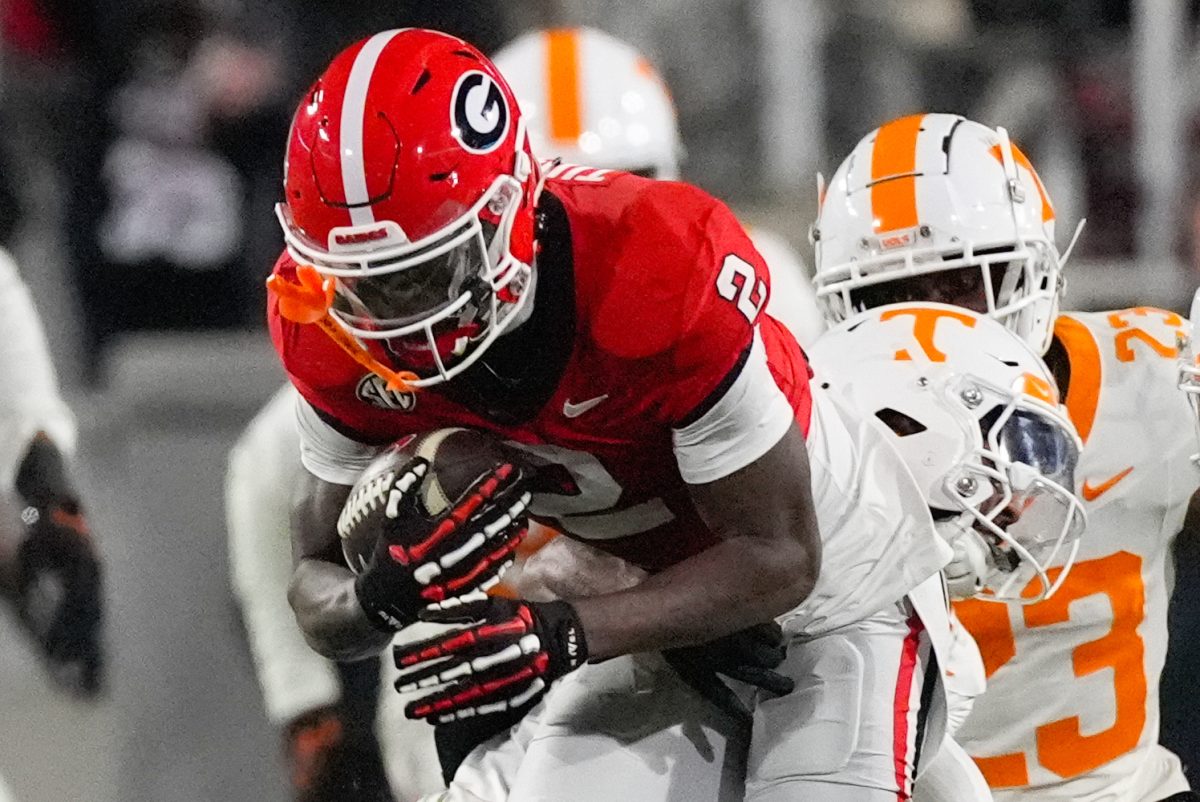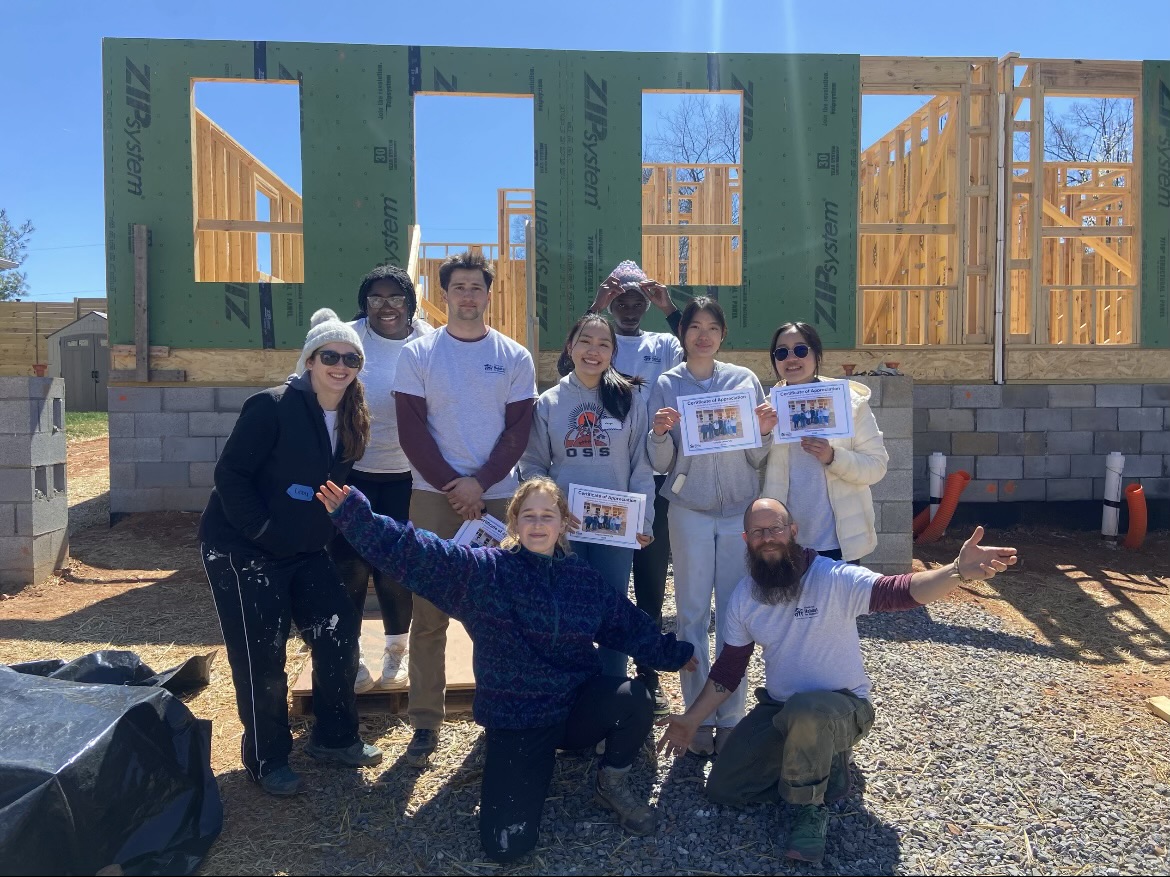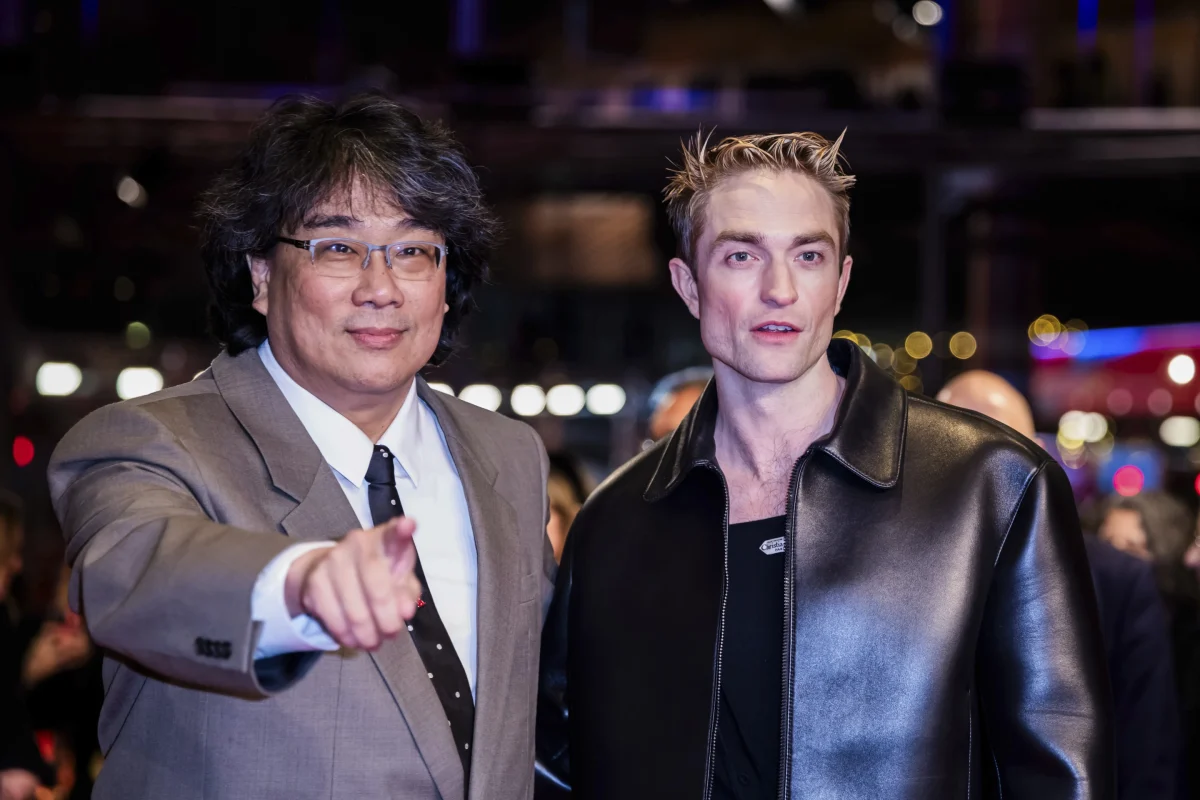The Colgate University Center for Freedom and Western Civilization held a lecture and discussion on “Ukrainian Cultural Heritage on the Frontlines of War” with Tomasz Grzywaczewski on Tuesday, Nov. 19. Grzywaczewski is a Polish war journalist, non-fiction writer and documentary filmmaker with a focus on Central and Eastern Europe. Grzywaczewski is also the director of the film “Erase the Nation,” which documents crimes against Ukrainian cultural heritage and explores the motivations behind the destruction of Ukrainian and Central European culture.
In his lecture, Grzywaczewski shared his beliefs on Russia’s intentions behind the war in Ukraine.
“I am deeply convinced that Russia is deliberately destroying Ukrainian cultural and national heritage in order to erase Ukrainian nations,” Grzywaczewski said.
Grzywaczewski continued to discuss the cultural implications of the war in Ukraine, both at an individual and societal level.
“Because of this war, there are writers, painters, musicians who can’t create art because they need to fight,” Grzywaczewski said. “This is the great loss for all of us, because it means that they will not create some new book or some new painting or some new piece of music, so all of us are losing something because they can’t contribute to the culture.”
To conclude the lecture, Grzywaczewski presented the trailer of “Erase the Nation” and conveyed his gratitude for those who participated in the creation of the film.
“I am tremendously grateful for the protagonists of our movie, the people who decided to share their stories with us,” Grzywaczewski said. “It is extremely difficult to openly speak about traumatic experiences, about suffering.”
After the lecture, Grzywaczewski participated in a discussion with Co-Director of the Center for Freedom & Western Civilization and Associate Professor of Art Carolyn Guile. Within the discussion, he expanded on what good journalism means to him.
“I usually work on the ground with the people who are suffering, who are deprived of the opportunity to tell about what’s happening to them,” Grzywaczewski said. “And for me this journalistic mission is to reach them and to let them speak. So I should be giving them a voice, not trying to enter credit, not trying to add my own perspective or my own position, but just let them speak. And I think, for me, this is crucial in journalism currently.”
During the discussion, Grzywaczewski shared accounts of his experiences as a war journalist in Ukraine. Through these accounts he also shared what he learned about the Ukrainian people.
“In September they hit the city of Lviv that is located in Western Ukraine, only about 70 miles from the Polish border,” Grzywaczewski said. “ Being in Ukraine, you never know what is going to happen this night or another night, so people in Ukraine really strive to live normally. And it’s a society that is very difficult to understand when we live here. This desire, just to know that you’re not going to be killed tomorrow or in a month or two months.”
As a Pole, Grzywaczewski expressed a bittersweet sentiment towards the Ukrainian people, whom he felt were almost sacrificing themselves as a buffer between aggressive Russia and the rest of central and Eastern Europe.
“This is the first war in centuries where Poles are not being killed. They are fighting for their freedom, and also for our freedom,” Grzywaczewski said. “It’s a privilege that we don’t have to die this time, that Ukrainians are dying for us.”
Sophomore Ethan Aday found the lecture and discussion informative, and was interested in the new perspectives it offered.
“I appreciated [Grzywaczewski’s] highlighting of Russian tactics of cultural genocide being enforced, and it was eye-opening to see how these tactics have been systematically enforced by Russia in previous, similar conflicts,” Aday said.
Senior Naomi Kraemer found meaning in Grzywaczewski’s work and drew inspiration from the lecture and discussion to uplift voices.
“I think doing whatever we can to preserve Ukrainian cultural heritage, and going forward trying to give people who experienced trauma a voice is super important work,” Kraemer said. “I very much appreciate what he has done.”









